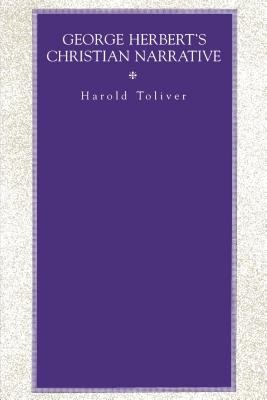
- We will send in 10–14 business days.
- Author: Harold Toliver
- Publisher: Penn State University Press
- ISBN-10: 0271026715
- ISBN-13: 9780271026718
- Format: 15.2 x 22.9 x 1.7 cm, minkšti viršeliai
- Language: English
- SAVE -10% with code: EXTRA
Reviews
Description
No seventeenth-century poet was more popularly read or imitated than George Herbert, and none represents the lyric implications of the Christian narrative more fully, with the possible exception of Milton. There is therefore a growing perception that George Herbert deserves to be placed more in the mainstream of literary history and that romanticism and modernism are not exclusively post-Milton phenomena. As one of the centers of new historicist interest, The Temple has of late been seated in the context of church controversies, Reformation thought, and the politics of the 1620s. Yet previous studies have been reluctant to widen their focus to locate Herbert within the intellectual movements of the earlier seventeenth century, apart from doctrinal issues and the social idiom that he often uses.
Harold Toliver explores the implications for Herbert's lyrics of the Christian narrative--the secular labyrinth and the parables' guiding rope, the conflicts between heart and mind, the agonies of postponement, intervals and abstract totality, the visible church and its calendar, the concept of an ending, and Herbert's adaptation of the sonnet form. To establish Herbert's place among other seventeenth-century writers who make use of the Christian narrative, Toliver provides close readings of several poems and new configurations that reveal the pressure of the narrative whole on lyric moments as well as the bearing of the times on them. Herbert had difficulty salvaging any interest in a university or a secular career once he turned to sacred poetry. He also subordinated all phases of the Bible as a cultural history to the single pattern imposed by the Pauline reduction of the Bible to a single story. As part of Toliver's assessment of Herbert's intellectual landscape and active engagement in alternatives, the treatment polarizes that Pauline method and the Hebrew Bible's anecdotal, political, and social detail.
EXTRA 10 % discount with code: EXTRA
The promotion ends in 22d.18:23:30
The discount code is valid when purchasing from 10 €. Discounts do not stack.
- Author: Harold Toliver
- Publisher: Penn State University Press
- ISBN-10: 0271026715
- ISBN-13: 9780271026718
- Format: 15.2 x 22.9 x 1.7 cm, minkšti viršeliai
- Language: English English
No seventeenth-century poet was more popularly read or imitated than George Herbert, and none represents the lyric implications of the Christian narrative more fully, with the possible exception of Milton. There is therefore a growing perception that George Herbert deserves to be placed more in the mainstream of literary history and that romanticism and modernism are not exclusively post-Milton phenomena. As one of the centers of new historicist interest, The Temple has of late been seated in the context of church controversies, Reformation thought, and the politics of the 1620s. Yet previous studies have been reluctant to widen their focus to locate Herbert within the intellectual movements of the earlier seventeenth century, apart from doctrinal issues and the social idiom that he often uses.
Harold Toliver explores the implications for Herbert's lyrics of the Christian narrative--the secular labyrinth and the parables' guiding rope, the conflicts between heart and mind, the agonies of postponement, intervals and abstract totality, the visible church and its calendar, the concept of an ending, and Herbert's adaptation of the sonnet form. To establish Herbert's place among other seventeenth-century writers who make use of the Christian narrative, Toliver provides close readings of several poems and new configurations that reveal the pressure of the narrative whole on lyric moments as well as the bearing of the times on them. Herbert had difficulty salvaging any interest in a university or a secular career once he turned to sacred poetry. He also subordinated all phases of the Bible as a cultural history to the single pattern imposed by the Pauline reduction of the Bible to a single story. As part of Toliver's assessment of Herbert's intellectual landscape and active engagement in alternatives, the treatment polarizes that Pauline method and the Hebrew Bible's anecdotal, political, and social detail.


Reviews